Fishing with smartphones for science
29 February 2016
Lots of people enjoy fishing in rivers and freshwater streams around the world. Many people fish standing in the water, using waterproof boots – called waders – that extend all the way from the foot to the waist or the chest. Researchers Rolf Hut and Tim van Emmerik from the Netherlands and Scott Tyler from the US have now developed smart waders that still keep you dry but also collect valuable information about the water to help scientists study streams. The team’s idea is simple: equip the waders with low-cost sensors that measure water temperature and send the information to the wearer’s smartphone and back to scientists in the lab. Modern phones have GPS (Global Positioning Systems), a technology we normally use to find out where we are. Thus, smart waders combined with smartphones provide temperature and location data, giving scientists back at the lab important information to study water ways. In this way they can find out more about how cold water that comes from the ground (groundwater) interacts with the warm water in the streams at the surface. The smart waders, which for now are only a prototype (study version), are also useful for the fishing folk themselves. Some fish like warmer water, some like it cold. So fishermen using the waders can use the temperature information to move to places in the stream more likely to have a particular type of fish. The team want to reach out to fishing enthusiasts, conservation groups and school students to get as many people as possible to wear the smart waders. Tim says: “Whether it’s school kids or fishermen, studies like ours demonstrate that everyone can be a scientist.” Want to give it a try?Find out more
Discuss with your teacher or parents
Why is it important to study water in streams? What can we learn from such studies? And what are other ways in which scientists can gather information about rivers and fresh-water streams?
Think about the role of streams in the water cycle. A simplified water cycle can be found at http://water.usgs.gov/edu/watercycle.html.
Print version
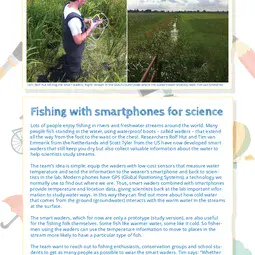
This is a kids' version of the EGU article: 'Fishing with smartphones for science'. It was written by Bárbara Ferreira (EGU Media and Communications Manager), reviewed for scientific content by Rolf Hut (Researcher at Delft University of Technology, the Netherlands) and Scott Tyler (Professor of Hydrogeology, University of Nevada, Reno, US), and for educational content by Phil Smith (Coordinator, Teacher Scientist Network, John Innes Centre, Norwich, UK).
Translations
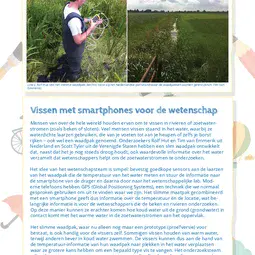
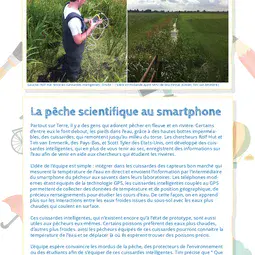
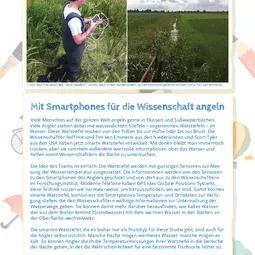
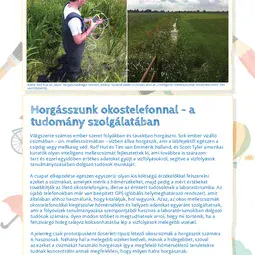
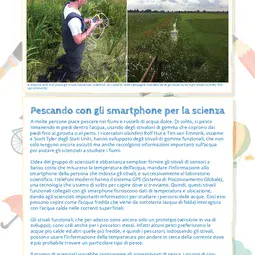
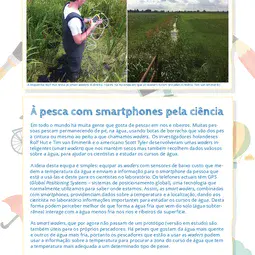
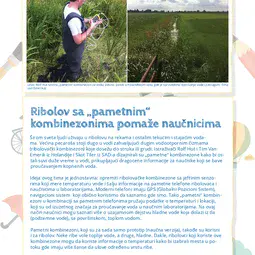
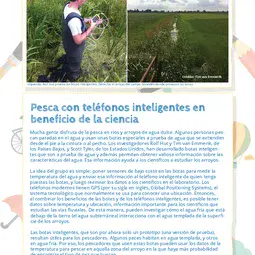
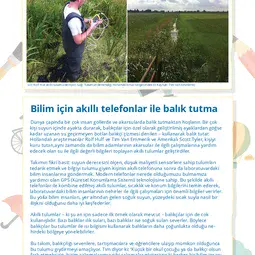
All English-language Planet Press releases are carefully edited, reviewed and proofed, by scientists, educators and EGU staff. Please note that once translated, Planet Press releases receive no further checks from EGU staff. For this reason, we cannot guarantee their accuracy, though we trust the quality of our voluntary translators and are grateful for their work.

